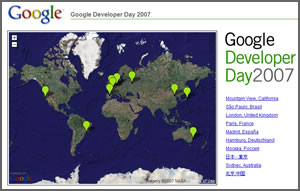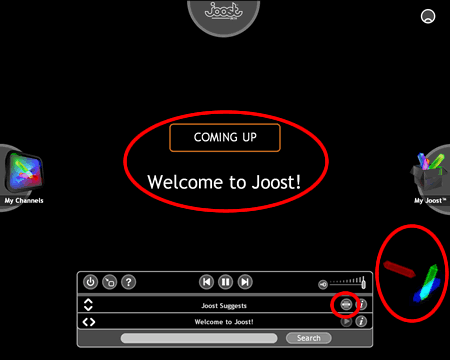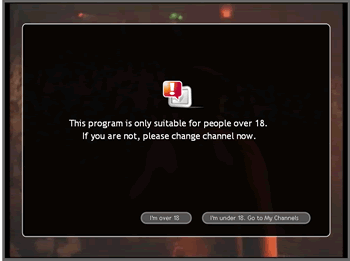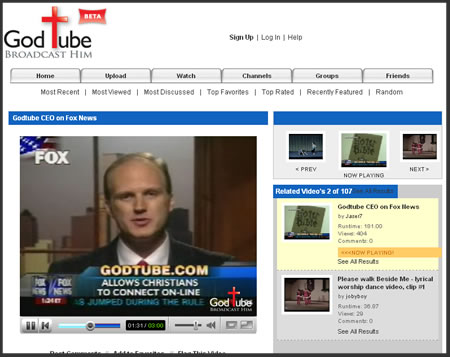It will be interesting to see if the now-formidable legal department of Google drops a letter to a new site, GodTube that apes their YouTube video service.
 GodTube, you won’t be surprised to hear, shows videos that praise god. It’s yet to launched, with the expected out-of-beta date being 1 May.
GodTube, you won’t be surprised to hear, shows videos that praise god. It’s yet to launched, with the expected out-of-beta date being 1 May.
Looking at the site, loving god doesn’t necessarily mean that you observe the rights of those who have gone before you. The less-than-coincidental name similarity isn’t the only thing that will remind you of YouTube. GodTube also closely-mimics the general look and feel of YouTube.
Similarities don’t end there, they even stretch to the GodTube strapline Broadcast Him, only a small adjustment from YouTube’s Broadcast Yourself.
Listening to GodTube’s CEO, Chris Wyatt, speaking on Fox News, he claims to have “come up with the idea for GodTube” when he was attending a seminary in Dallas. Quite what the idea he came up with he didn’t elucidate, but if it was “I know let’s copy YouTube, but call it GodTube,” we’d hardly call it an idea.

Wyatt is keen to tell everyone about how well it’s doing, claiming that within 60 days it was the most-trafficked Christian stream video site on the Internet. His ambitions don’t appear to stop there, as if they continue at this rate, Wyatt claims they “will become the most trafficked Christian Web site on the Internet.”
By trafficked, we assume he means the amount of bits that they shift. As they’re putting out video (the most bit-laden content format available), his claims start to sound significantly less impressive.
One area GodTube differs significantly from YouTube is in how open they are in showing the videos of those who want to upload content to their site. YouTube doesn’t put a human filter in the way, understanding that given the number of videos that are uploaded, it just isn’t realistic.
GodTube may struggle with their approach, suffering a plague of videos rather than the mythical plague of locusts. They’re going to pass all submitted content through two manual filters – real people. The first will check if it’s presentable to the public, the second to ascertain its Theological implications!
Here’s a little sample. It’s only a minute long, but will give you an indication of what to expect. Get read for an explanation of a banana. We kid you not.
 It’s not just old content that will be available, but new productions from Paramount including DreamWorks titles, which will be among the latest films available.
It’s not just old content that will be available, but new productions from Paramount including DreamWorks titles, which will be among the latest films available. The program is being headed up by code-fan pin-up girl
The program is being headed up by code-fan pin-up girl  Well, people become more familiar with how to write programs to use their applications via the published API’s, which means the potential for extra advertising income for Google.
Well, people become more familiar with how to write programs to use their applications via the published API’s, which means the potential for extra advertising income for Google.
 Those of you who have been watching the development of Joost, will notice that the adverts are getting just a little bit longer and more corporate. The latest addition appears to be an advert for IBM notebooks, while it is visually interesting (for the first viewing), it’s hardly cutting edge funk-ville.
Those of you who have been watching the development of Joost, will notice that the adverts are getting just a little bit longer and more corporate. The latest addition appears to be an advert for IBM notebooks, while it is visually interesting (for the first viewing), it’s hardly cutting edge funk-ville. If you travel around the UK a lot and find the homogenisation of High Streets into identical rows of bland coffeeshop multinationals a deeply depressing experience, you may find
If you travel around the UK a lot and find the homogenisation of High Streets into identical rows of bland coffeeshop multinationals a deeply depressing experience, you may find  Delocating the world
Delocating the world With Starbucks promising to open a new branch
With Starbucks promising to open a new branch  Today they’ve announced it’s for real. The new Complete My Album will give iTunes users 79p credit per track for each track on an album that they decide to purchase, if they’ve bought the tracks individually first.
Today they’ve announced it’s for real. The new Complete My Album will give iTunes users 79p credit per track for each track on an album that they decide to purchase, if they’ve bought the tracks individually first. There’s been back and forth between Yahoo and Google, following
There’s been back and forth between Yahoo and Google, following 
 Ofcom have just announced a new regulatory code for Voice over Internet Protocol (VoIP) service providers operating in the UK.
Ofcom have just announced a new regulatory code for Voice over Internet Protocol (VoIP) service providers operating in the UK. Before June 2007, all VoIP providers will be required to make it clear :-
Before June 2007, all VoIP providers will be required to make it clear :- Sitting on the tube, opposite such an ad, I figured that there were only two possible companies which could be accused of controlling 80% of information on the Web; it could plausibly refer to either Internet Explorer’s market share (and would therefore be an advert for Firefox) or Google’s market share. Since I knew Mozilla wasn’t planning any advert like this, I assumed that it was a competitor to Google, and concluded it was probably Ask (since neither Yahoo or Microsoft would manage to think outside the box to such an extent). However, I dismissed that idea instantly as it seemed so unlikely that a well respected company would attempt such a pathetic campaign, and that therefore it must be some new search engine with far too much venture capital. By that point I had lost interest, and began examining the ventilation panel.
Sitting on the tube, opposite such an ad, I figured that there were only two possible companies which could be accused of controlling 80% of information on the Web; it could plausibly refer to either Internet Explorer’s market share (and would therefore be an advert for Firefox) or Google’s market share. Since I knew Mozilla wasn’t planning any advert like this, I assumed that it was a competitor to Google, and concluded it was probably Ask (since neither Yahoo or Microsoft would manage to think outside the box to such an extent). However, I dismissed that idea instantly as it seemed so unlikely that a well respected company would attempt such a pathetic campaign, and that therefore it must be some new search engine with far too much venture capital. By that point I had lost interest, and began examining the ventilation panel.
 GodTube, you won’t be surprised to hear, shows videos that praise god. It’s yet to launched, with the expected out-of-beta date being 1 May.
GodTube, you won’t be surprised to hear, shows videos that praise god. It’s yet to launched, with the expected out-of-beta date being 1 May.
 We mourned the lack of Mac and Linux support. Given that all Polycom needed to do was write a driver or two to get it running, we were disappointed that there was no movement on this
We mourned the lack of Mac and Linux support. Given that all Polycom needed to do was write a driver or two to get it running, we were disappointed that there was no movement on this